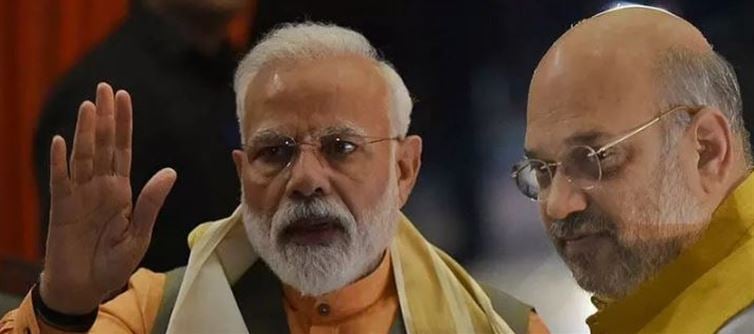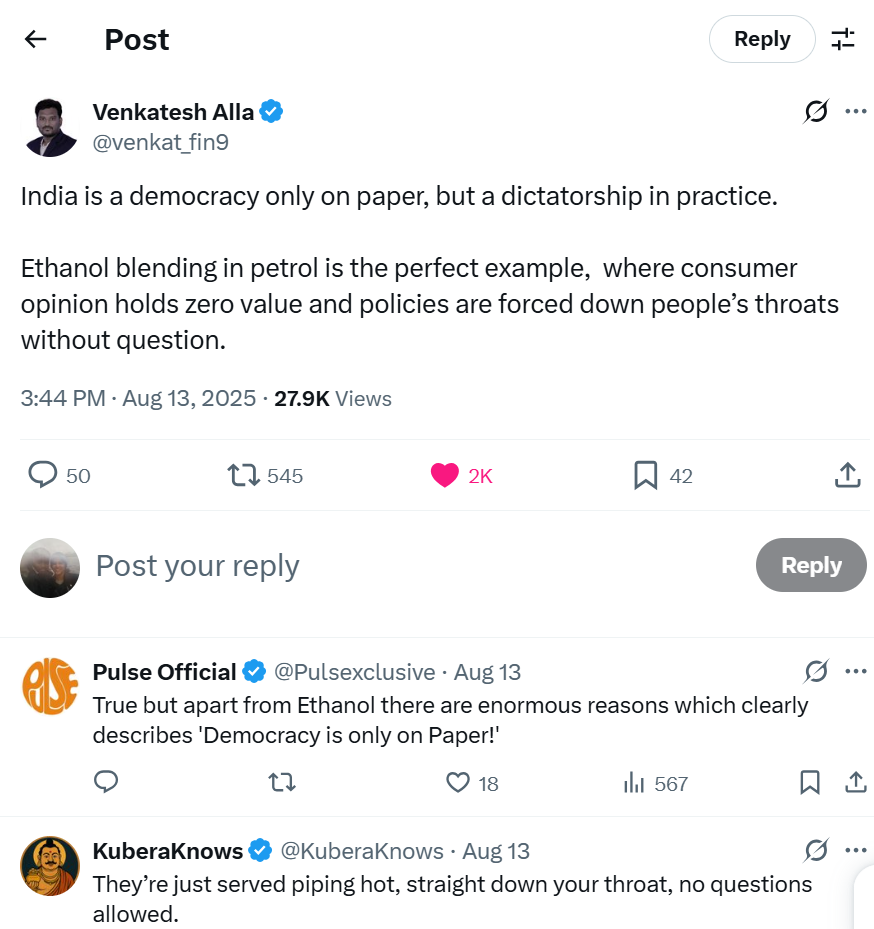
India often takes pride in being the world’s largest democracy, and in theory, the definition fits. We vote, we debate, and we hold elections with great fanfare. But living as a citizen here, I often feel that democracy is reduced to just a word we brandish, not a reality we experience. Policies come at us fully formed, without consultation or discussion, as though the people they affect are incidental. Ethanol blending in petrol is one such glaring example. Across the country, ordinary vehicle owners have complained of mileage drops and disguised cost hikes, yet these concerns vanish into thin air. The government insists on calling it reform, but for us, it feels like a forced choice—one where our opinions count for nothing.
This, to me, doesn’t even resemble a dictatorship in its classical sense. Dictatorship implies that power is concentrated at the top, that one supreme authority dictates terms. What we face here is more scattered, more suffocating—it feels like gunda-raj. There isn’t just one authority to fear, but multiple layers of unchecked power. A local official who can impose arbitrary rules, a bureaucratic system that resists accountability, a corporate body that quietly passes costs onto us—everywhere, ordinary citizens find themselves cornered. Unlike the predictable rigidity of dictatorship, this fragmented power structure is far more insidious, making us anxious not just about the rulers at the top but about countless smaller authorities who exercise control over our daily lives.
 Living under such a system is like being constantly force-fed. Policies, taxes, and regulations arrive “piping hot,” with no chance to ask whether we want them or can afford them. There’s no dialogue, no genuine debate, no sense that the citizen’s voice has weight. What makes this harder is the helplessness it breeds: you feel like a passive spectator in a country where you’re supposed to be a participant. We proudly tell the world that india is a democracy, but at home, it often feels like a performance, not a practice. And until citizens are truly seen and heard, democracy will remain less of an experience and more of a slogan—a label we wear, but not one we live.
Living under such a system is like being constantly force-fed. Policies, taxes, and regulations arrive “piping hot,” with no chance to ask whether we want them or can afford them. There’s no dialogue, no genuine debate, no sense that the citizen’s voice has weight. What makes this harder is the helplessness it breeds: you feel like a passive spectator in a country where you’re supposed to be a participant. We proudly tell the world that india is a democracy, but at home, it often feels like a performance, not a practice. And until citizens are truly seen and heard, democracy will remain less of an experience and more of a slogan—a label we wear, but not one we live.




 click and follow Indiaherald WhatsApp channel
click and follow Indiaherald WhatsApp channel